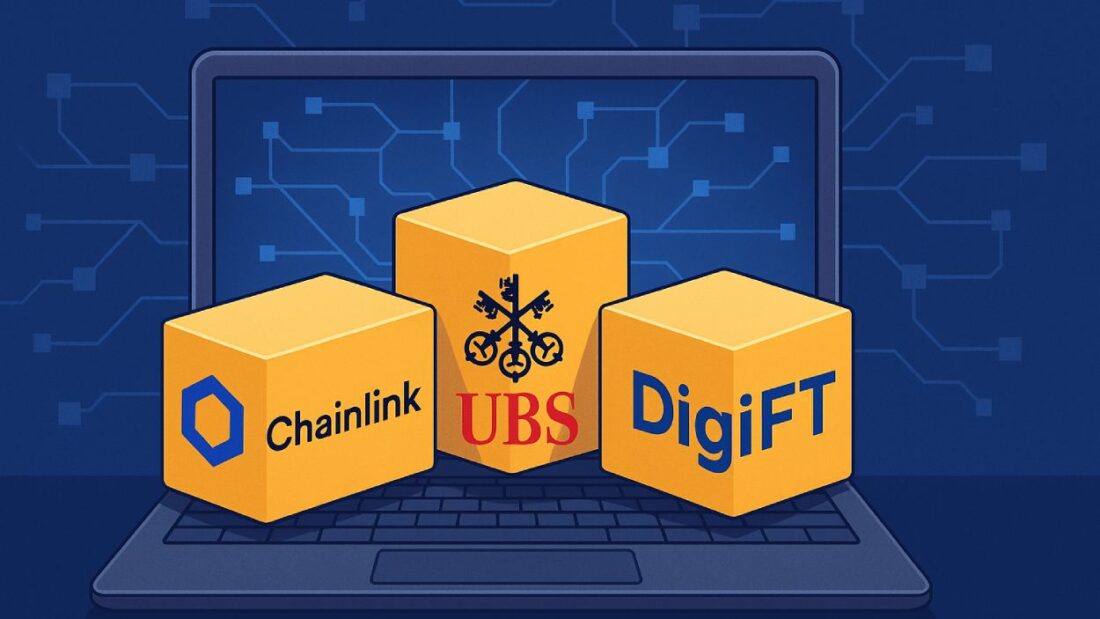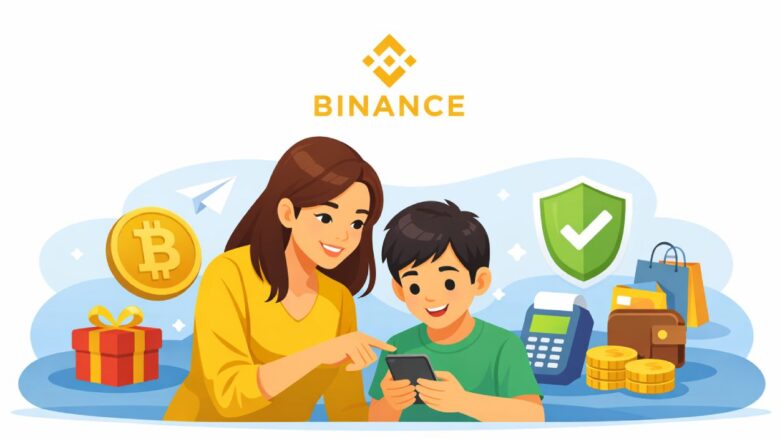Chainlink, UBS, and DigiFT have partnered to automate tokenized fund management through a regulated blockchain platform in Hong Kong.
Key Takeaways
- Chainlink, UBS, and DigiFT are collaborating to launch a regulated platform for tokenized real-world assets (RWAs).
- The project is backed by Hong Kong’s Cyberport Blockchain & Digital Asset Pilot Subsidy Scheme.
- It aims to automate fund lifecycle management using smart contracts, cutting costs and errors in the $132 trillion global asset management sector.
- The initiative could strengthen Hong Kong’s role as a global hub for regulated digital asset innovation.
What Happened?
Chainlink Labs, UBS Asset Management, and DigiFT have launched a joint initiative to automate tokenized funds, focusing on the Greater China region. Their blockchain-based platform is part of Hong Kong’s push to become a global leader in regulated digital assets. The system will automate everything from fund issuance to redemption using smart contracts, offering greater efficiency and transparency.
CHAINLINK, UBS, AND DIGIFT PARTNER TO AUTOMATE TOKENIZED FUND OPERATIONS IN HONG KONG
— BSCN (@BSCNews) September 11, 2025
– @Chainlink, @UBS, and @DigiFTTech have teamed up to streamline tokenized fund operations on-chain under Hong Kong’s Cyberport Blockchain & Digital Asset Pilot Subsidy Scheme.
– The… pic.twitter.com/qsL7KFBk3H
A Major Milestone in Fund Tokenization
The new platform is built to streamline how investors interact with tokenized products by removing manual processes. Investors will place subscription or redemption orders for UBS’s tokenized funds through DigiFT’s regulated smart contracts. These orders will then be executed using Chainlink’s Digital Transfer Agent (DTA), which will automatically trigger the appropriate actions on UBS’s proprietary UBS Tokenize platform.
Every transaction is recorded on-chain, and the process follows global compliance standards. This helps to ensure transparency and consistency while reducing operational errors and costs associated with manual fund management.
The platform integrates:
- Chainlink’s Digital Transfer Agent smart contracts to validate and record fund actions.
- DigiFT’s regulated distribution channels, approved by Singapore’s MAS and Hong Kong’s SFC.
- UBS Tokenize, which handles tokenized fund creation and actions.
Henry Zhang, Founder of DigiFT said:
Government-Backed Innovation
The project has been accepted under Hong Kong’s Cyberport Blockchain & Digital Asset Pilot Subsidy Scheme, which provides funding and a regulatory sandbox for Web3 initiatives. This scheme highlights Hong Kong’s commitment to digital transformation and positions the city as a pioneer in institutional-grade blockchain applications.
Kevin Loo, Hong Kong CEO of DigiFT, emphasized the strategic importance of the initiative: “By working alongside UBS and Chainlink, we are creating solutions that not only meet institutional standards but also strengthen Hong Kong’s position as a global hub for tokenized finance.”
Setting a Standard for Capital Markets
Chainlink’s Capital Markets President Fernando Vazquez called the initiative a “major milestone” for the industry. He said it sets a benchmark for secure and transparent fund workflows within Hong Kong’s regulatory framework. The project also demonstrates how blockchain technology can be used not just for issuing digital assets but for managing the entire lifecycle of financial products in a compliant and efficient way.
As a next-generation exchange, DigiFT will help validate the infrastructure and test it for real-world usage, ensuring it meets the evolving needs of Hong Kong’s financial sector. The platform is designed to scale globally by connecting tokenized products across multiple blockchains.
CoinLaw’s Takeaway
In my experience, projects like this are what push blockchain from hype to utility. What excites me most is not just the automation, but the real regulatory traction in a market like Hong Kong. UBS brings institutional credibility, Chainlink brings robust on-chain infrastructure, and DigiFT connects the dots with regulated distribution. If this works as planned, it is a game-changer for how traditional finance interacts with crypto. It is the kind of thing that brings more serious players into the space, which is exactly what blockchain needs.


































































